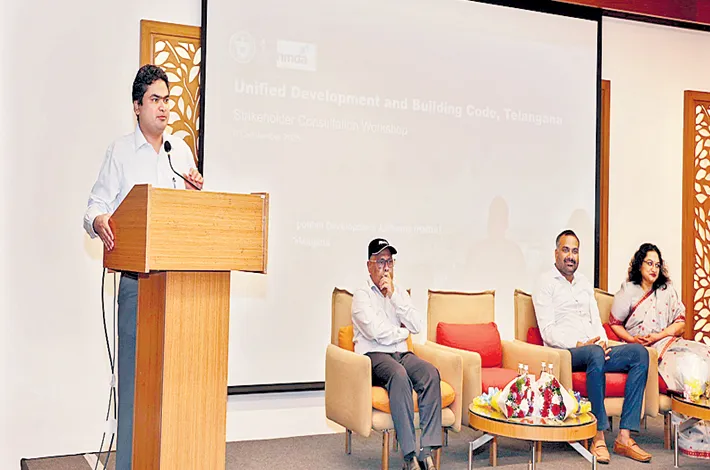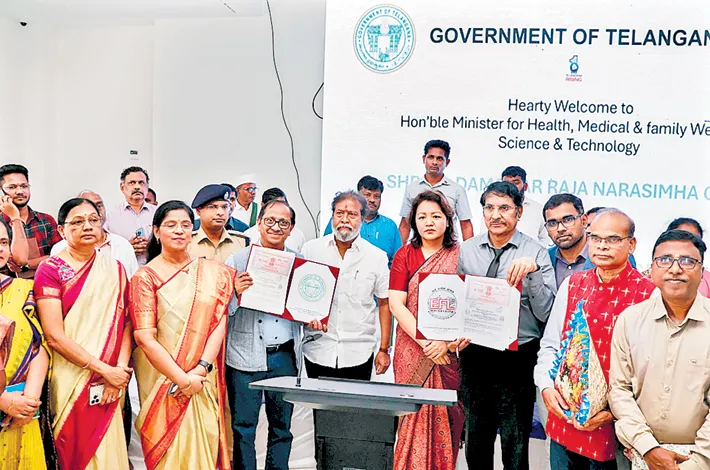Privacy breach cannot be the solution to fraud in medi-claims
19-04-2025 12:00:00 AM

If the goal is to prevent fraudulent claims, authorities must focus on scientific, ethical, and patient-friendly measures, including
1. Strengthening hospital monitoring systems – Fraud can be curbed through better audits, biometric authentication, and improved documentation rather than privacy violations.
2. Training healthcare professionals to respect patient dignity and confidentiality.
3. Strict enforcement of ethical guidelines, preventing any demand for invasive documentation.
4. Ensuring strict data protection laws, with severe penalties for breaches of patient privacy.
5. Educating patients about their rights, so they can challenge unethical demands and seek legal recourse.
Recent reports highlight a concerning trend in the implementation of Ayushman Bharat-PMJAY in certain states. In an attempt to curb fraudulent claims and misuse of funds, some insurance companies have mandated the submission of images showing both the patient’s face and the surgery site. This new requirement disproportionately affects women undergoing procedures related to breasts, hips, and other private areas, raising serious concerns about privacy, ethics, and medical necessity.
While fraud prevention is crucial, breaching patient privacy cannot be the easy way out. Instead of strengthening verification systems, enforcing ethical standards, and improving monitoring mechanisms, authorities are opting for an intrusive and unnecessary method that violates patient dignity and creates barriers to essential healthcare.
Requiring explicit images of a patient’s body parts is neither medically necessary nor effective for fraud prevention. Breast cancer and other medical conditions are diagnosed and confirmed through clinical examinations, mammograms, biopsies, MRIs, and ultrasound scans. These are scientific and standardized forms of evidence, unlike photographs, which offer no medical insight into a patient’s condition.
If the intent is to confirm patient identity, existing official documents such as Aadhaar, hospital records, and biometric verification serve this purpose without violating privacy. The insistence on images suggests either a lack of medical understanding or a disregard for patient dignity—both of which are deeply problematic.
Forcing women to submit sensitive images in a country with a troubling history of data leaks, cyber exploitation, and digital voyeurism is highly dangerous. Cases of leaked private images, deepfake technology, and unauthorized data sharing are rampant. Even government and financial institutions struggle with data security—expecting underfunded hospitals to safeguard such sensitive medical images is unrealistic.
The potential risks include:
- Unauthorized leaks leading to public embarrassment and social stigma
- Blackmail and online exploitation of vulnerable patients
- Fear-driven avoidance of life-saving treatment, worsening health disparities
Rather than exposing patients to digital threats, the system should invest in strong data security measures, robust fraud detection systems, and patient rights protection.The demand for explicit images is not just a bureaucratic misstep; it reinforces historical gender discrimination in healthcare.
Women’s bodies have been subjected to scrutiny, control, and exploitation—from forced sterilizations to restricted reproductive rights. Requiring women to submit images of their breasts or intimate body parts reduces them to objects of scrutiny, rather than individuals seeking medical care.
This policy also disproportionately impacts marginalized women—particularly from rural or conservative backgrounds—who may not fully understand the implications or feel empowered to refuse. Many may forego essential treatment rather than risk humiliation or exploitation.
India has legal frameworks, including:
The Medical Council of India (MCI) Code of Ethics
The Personal Data Protection Bill
The Transgender Persons (Protection of Rights) Act, 2019
These laws emphasize patient privacy and informed consent, yet weak enforcement allows unethical policies to persist.
Mandating the submission of explicit images of women’s bodies under Ayushman Bharat-PMJAY is a gross violation of privacy, medical ethics, and fundamental rights. If India truly seeks inclusive, accessible, and gender-sensitive healthcare, policies should be shaped by science, ethics, and respect for human dignity—not bureaucratic insensitivity and patriarchal oversight.
Instead of violating patient rights, the focus should be on tightening internal systems, enforcing ethical practices, and ensuring that the fraud detection methods do not come at the cost of human dignity.
(Dr A L Sharda, Trustee, Population First)








